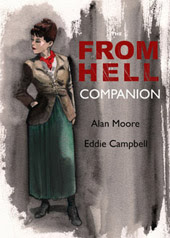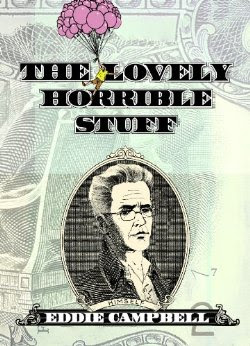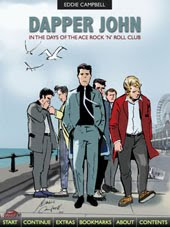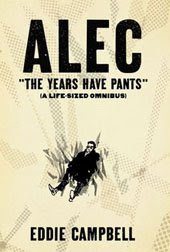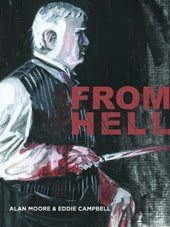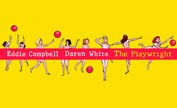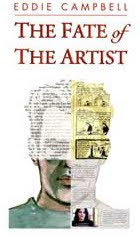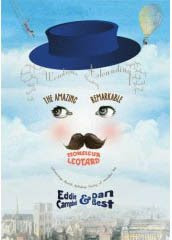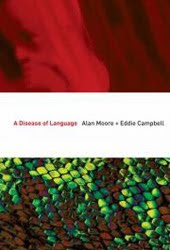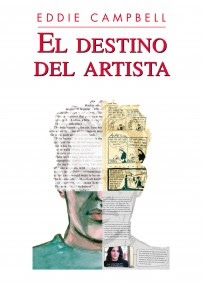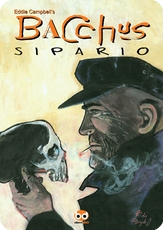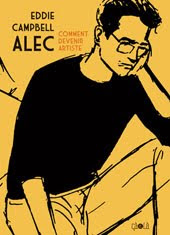borrowed by a bunch of boobs
Don't mistake this astonishing work by Australia's Shaun Tan for a picture book, even though it consists of nothing but pictures. At 128 pages, it's what could be called a pictorial novel, since the usual label -- graphic novel -- suggests more of a manga- or comic-style book, bristling with text... Then he writes: Where's Eddie Campbell?
'Eddie Campbell, semantic troubleshooter,' it says on my business card. In truth, I have unfortunately obtained for myself the reputation of a nitpicker who doesn't like the phrase 'graphic novel'. Nothing could be further from the truth. My dislike has always been for most of the boobs who use the phrase, most memorably the boob I saw recently in a store who referred to two copies of the same book as 'these two graphic novels.' My 'terminological madness' as Neil Gaiman called it is largely due to the fact that half of the people reading this are thinking 'and what's wrong with that?' I have for a long time maintained that most of the confusion we get from the mainstream media is not the result of them being 'clueless critics' as Tim labelled his post, but the result of us feeding them confusion by the bucketload. I recall and still have in my files a mainstream review that begins "Jimmy Corrigan may not be sequential art, but it sure is comics," and another review that begins "The Fate of the Artist is not a graphic novel per se." Then there is the line from the intro to Graphic Witness which I quoted here recently: "Although neither (A Contract With God and Maus) is a comic book - and the themes of both are closer to tragedy than comedy - Eisner and Spiegelman are considered by some to be comic book artists." But for every one of those I could name two from the comic book community, such as the review of The Arrival that began "THE ARRIVAL is in a format maybe more reminiscent of a children's book than a graphic novel or comic... but if Eddie Campbell says it's a graphic novel then that's good enough for me."
This goes way above and beyond semantic nitpicking. Any term is only useful so long as it communicates meaning, and I have no hesitation about ditching one as soon as it loses that value. A phrase can flourish while holding more than one meaning, indeed it's almost obligatory in a living and thriving language. However, in the kind of examples I quote above we're seeing missed and bungled opportunities and considering our medium's ongoing difficulties in interfacing with the general bookstore and the mainstream media, there is much at stake. The 'idea' of the 'graphic novel' as an independent art came off badly in the above review. Elizabeth Ward is quite right in thinking that 'graphic novel' is not the phrase she needed to describe The Arrival. BUT IT SHOULD HAVE BEEN. It was coined to perform that very task. Then it got borrowed by a bunch of boobs and it came back busted.
Labels: "it's not a graphic novel percy"









